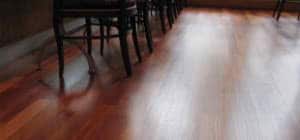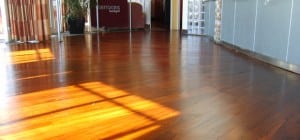
If you are planning on working on your sanding and finishing your wood floor in Surry, and need to make sense of the variety of finishes out there in the market, we have compiled a list of finishes as well as glimpses into their properties to help you make a finish choice that is suitable for your wood floor.
If you need expert wood finishing professionals in Surrey then get in touch today for advice, or a free quotation.
-
Natural oil finish
There are various types of natural oil finishes, ranging from hard wax oil, which fairly colours the wood and gives it a protective sheen, to Tung oil, which is hard-wearing and is often considered the most exceptional natural oil finish.
Some of the many favourable characteristics of natural oil finishes are that they are not expensive, low maintenance, beautiful, environmentally friendly, and soaks well into the wood to minimise joint cracking.
-
Conversion varnish
This finish isn’t only durable. It’s chemical-resistant, dries quickly, is easy to repair, and is able to offer some protection to the wood cells while enhancing the grain for depth and colour. Conversion varnish is, however, very flammable; so it’s vital to be mindful of possible spark or fire sources and remove them. It also has a very strong odour, but that can be managed with proper ventilation after the application.
-
Waterborne
Being non-flammable, low VOC, and chemical-and-stain resistant, Waterborne finish is good for residential application. Though it’s also available for commercial use.
Among its other characteristics is the fact that it doesn’t give off much odour compared to the majority of other traditional finishes out there, and it doesn’t discolour or yellow with time.
-
Moisture-cure urethane
A high-traffic industrial building—like a dance floor or a gym—is the perfect place to use this finish. This is because it is extremely resistant to wear and chemicals. Moisture-cure urethane, taking its name from the fact that it uses water vapour to cure, usually requires relative humidity to be below 70% in order not to develop curing problem.
-
Lacquer
This finish isn’t recommended by many contractors and wood floor finish manufacturers because of its poor durability and dangerously low flash point. Which is probably why insurance companies are wary about insuring properties with lacquer-finished wood floors. Its only advantage is its ability to dry very quickly.
-
Oil-modified polyurethane
Targeting the residential market and complying with the demand for low VOCs, if not VOCs-free finishes, oil-modified polyurethane is not expensive and recently has begun to evolve into a finish with the safety of our health and environment in mind.
-
Shellac
The supply of shellac is naturally sustainable, since it stems from a resin produced by the lac beetle found in Asia. It is odourless, easy to refinish, dries quickly, and is very adhesive. It’s ideal for homeowners who are conscious of their environment’s health.
-
Wax
Wax finish dries fairly quickly—in a few hours—and is suitable if you want a finish that you can easily maintain on your own. To create a sheen, another material is often used to polish the coat.
If you are having a hard time deciding on the wood finish to use for your wooden floor, reach out to us. At GJP Floor Sanding and Finishing in Surrey, we are well-versed in all sorts of finishes.
Our experienced professionals will not only help you make a suitable choice, but can also handle the application of the finish. When you choose us satisfaction is guaranteed. Call us today!


